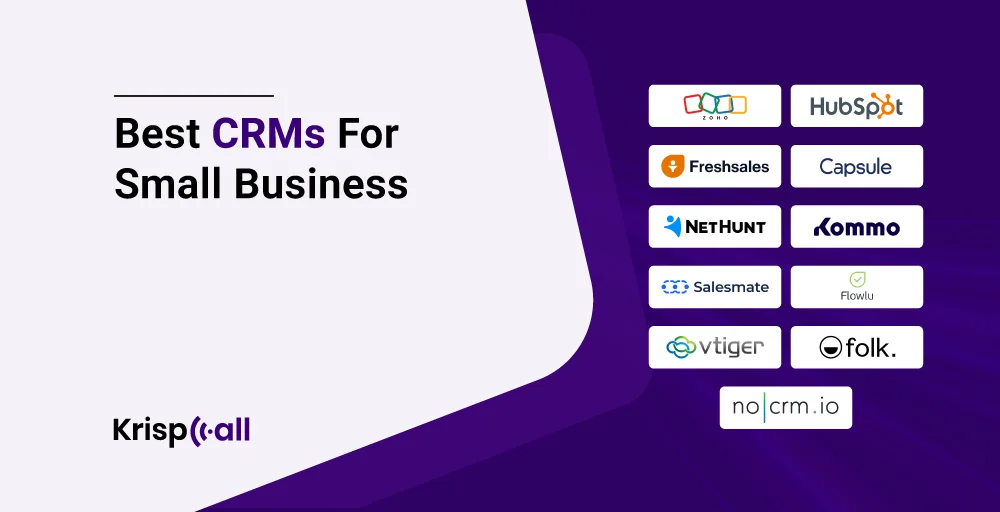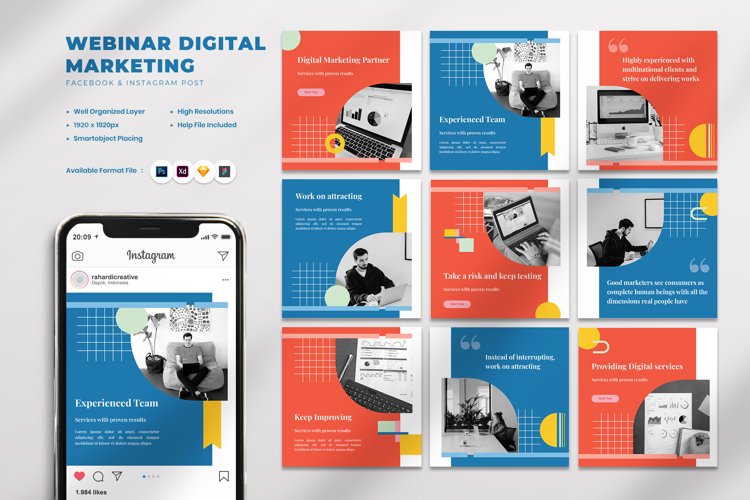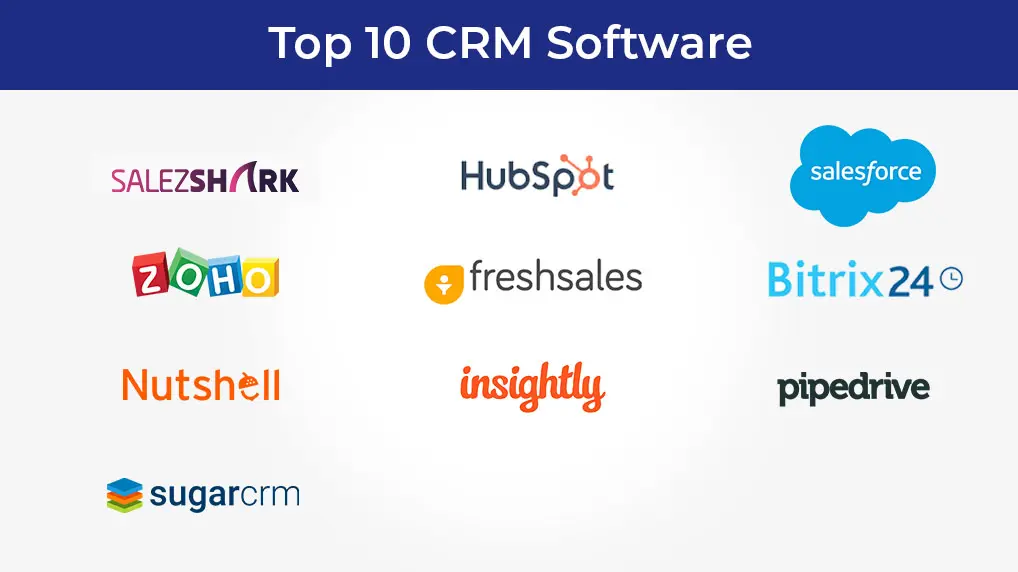Boost Your Indonesian Small Business: A Comprehensive Guide to CRM Systems

In the vibrant landscape of Indonesian entrepreneurship, small businesses are the lifeblood of the economy. They represent innovation, resilience, and a deep connection to local communities. However, in today’s competitive market, these businesses face the constant challenge of staying ahead. This is where a Customer Relationship Management (CRM) system comes in – a powerful tool that can revolutionize how you interact with your customers and ultimately, grow your business. This comprehensive guide will delve into the world of CRM, specifically tailored for small businesses in Indonesia, exploring its benefits, implementation strategies, and the best CRM options available.
Understanding the Power of CRM for Indonesian Small Businesses
Before we dive into the specifics, let’s understand what a CRM system truly is. At its core, a CRM is a technology that helps you manage all your company’s relationships and interactions with current and potential customers. Think of it as a centralized hub for all customer-related information, from contact details and purchase history to communication logs and support tickets. For Indonesian small businesses, this can be a game-changer.
Why? Because in a market as dynamic as Indonesia, understanding your customers is paramount. It’s not just about selling a product or service; it’s about building lasting relationships. A CRM system empowers you to:
- Enhance Customer Experience: Personalize interactions, anticipate needs, and provide exceptional service, leading to higher customer satisfaction and loyalty.
- Boost Sales: Identify and nurture leads, track sales progress, and close deals more efficiently.
- Improve Marketing Effectiveness: Segment your audience, tailor marketing campaigns, and measure their impact.
- Streamline Operations: Automate tasks, reduce manual data entry, and improve overall efficiency.
- Gain Valuable Insights: Analyze customer data to identify trends, understand customer behavior, and make data-driven decisions.
In the context of the Indonesian market, where personal relationships and trust are highly valued, a CRM system can be a significant asset. It allows you to build those crucial relationships, understand local nuances, and tailor your approach to resonate with your target audience.
Key Benefits of CRM for Indonesian Small Businesses
The advantages of implementing a CRM system for your Indonesian small business are numerous and can be categorized as follows:
1. Improved Customer Relationships
This is arguably the most significant benefit. A CRM helps you:
- Personalize Interactions: Access detailed customer profiles, allowing you to address customers by name, remember their preferences, and tailor your communication accordingly.
- Provide Excellent Customer Service: Quickly access customer history, resolve issues efficiently, and offer proactive support.
- Build Loyalty: Demonstrate that you value your customers by consistently providing a positive experience, leading to repeat business and positive word-of-mouth referrals.
2. Increased Sales and Revenue
CRM systems are designed to drive sales growth by:
- Lead Management: Capture, track, and nurture leads throughout the sales pipeline, ensuring no opportunity is missed.
- Sales Automation: Automate repetitive tasks like sending follow-up emails, scheduling appointments, and generating quotes, freeing up your sales team to focus on closing deals.
- Sales Forecasting: Analyze sales data to predict future sales trends and make informed business decisions.
3. Enhanced Marketing Effectiveness
CRM systems empower you to:
- Segmentation: Divide your customer base into specific groups based on demographics, purchase history, and other criteria, allowing you to target your marketing efforts more effectively.
- Targeted Campaigns: Create personalized marketing campaigns that resonate with specific customer segments, increasing engagement and conversion rates.
- Marketing Automation: Automate marketing tasks like sending email newsletters, running social media campaigns, and tracking website visits.
- Performance Measurement: Track the performance of your marketing campaigns and make data-driven adjustments to optimize your results.
4. Streamlined Operations and Increased Efficiency
CRM systems can significantly improve your business’s operational efficiency by:
- Centralized Data: Store all customer information in a single, accessible location, eliminating the need for multiple spreadsheets and databases.
- Automation: Automate repetitive tasks, such as data entry and report generation, freeing up your staff to focus on more strategic activities.
- Improved Collaboration: Enable your team to easily share customer information and collaborate on projects, improving communication and coordination.
5. Data-Driven Decision Making
CRM systems provide valuable insights into your customers and your business performance by:
- Reporting and Analytics: Generate reports on sales, marketing, and customer service performance, providing a clear picture of your business’s strengths and weaknesses.
- Customer Behavior Analysis: Track customer behavior, such as website visits and purchase history, to understand their needs and preferences.
- Trend Identification: Identify trends in customer behavior and sales data, allowing you to make data-driven decisions about your business strategy.
Choosing the Right CRM for Your Indonesian Small Business
Selecting the right CRM system is crucial for success. Here’s a step-by-step approach to help you make the right choice:
1. Assess Your Needs and Goals
Before you start evaluating CRM systems, take the time to understand your business’s specific needs and goals. Ask yourself the following questions:
- What are your primary business objectives? (e.g., increase sales, improve customer service, streamline marketing)
- What are your current pain points in managing customer relationships? (e.g., inefficient communication, lack of customer data, difficulty tracking leads)
- What features are essential for your business? (e.g., sales automation, marketing automation, customer service ticketing)
- What is your budget?
- How many users will need access to the CRM?
- What is your technical expertise? (Do you need a user-friendly system with minimal technical requirements?)
Answering these questions will help you create a clear picture of your requirements and narrow down your options.
2. Research CRM Options Available in Indonesia
Once you have a clear understanding of your needs, start researching the CRM systems available in the Indonesian market. Consider both global and local providers. Some popular options include:
- HubSpot CRM: A free, easy-to-use CRM suitable for small businesses. Offers basic features for contact management, sales, and marketing.
- Zoho CRM: A comprehensive CRM with a wide range of features, suitable for businesses of all sizes. Offers a free plan and affordable paid plans.
- Salesforce Sales Cloud: A leading CRM with advanced features and customization options, suitable for larger businesses. Can be more complex and expensive.
- Freshsales: A sales-focused CRM with features like lead scoring, sales automation, and phone integration.
- Pipedrive: A sales-focused CRM with a visual pipeline and easy-to-use interface.
- Local Indonesian CRM Providers: Explore local providers that may offer customized solutions and Indonesian language support.
When researching, consider factors such as features, pricing, ease of use, integration capabilities, and customer support.
3. Compare Features and Pricing
Create a spreadsheet or use a comparison tool to compare the features and pricing of different CRM systems. Focus on the features that are most important for your business. Be sure to compare:
- Core features: Contact management, sales automation, marketing automation, customer service tools.
- Pricing: Consider the different pricing tiers and the features included in each. Look for transparent pricing with no hidden fees.
- Scalability: Ensure the CRM can grow with your business.
- Integration capabilities: Check if the CRM integrates with other tools you use, such as email marketing platforms, accounting software, and social media channels.
- Customer support: Look for providers that offer excellent customer support in the Indonesian language.
4. Consider Ease of Use and User Experience
The ease of use of a CRM system is critical for adoption. If your team finds the system difficult to use, they may not use it effectively, and the benefits of the CRM will be lost. Consider the following:
- User interface: Is the interface intuitive and easy to navigate?
- Training and onboarding: Does the provider offer training and onboarding resources to help your team get up and running?
- Customization options: Can you customize the CRM to fit your specific business needs?
5. Evaluate Customer Support and Reviews
Customer support is crucial, especially when you are first implementing a CRM system. Consider the following:
- Availability: Does the provider offer customer support in the Indonesian language?
- Response time: How quickly does the provider respond to support requests?
- Support channels: Does the provider offer support via phone, email, chat, and other channels?
- Read reviews: Check online reviews to see what other users are saying about the provider’s customer support.
6. Test Drive the CRM (Free Trial)
Most CRM providers offer free trials. Take advantage of these to test the system and see if it meets your needs. During the trial, try:
- Entering data: Test the ease of entering and managing customer information.
- Using the features: Experiment with the key features, such as sales automation and marketing automation.
- Testing integrations: See how the CRM integrates with other tools you use.
- Evaluating the user experience: Make sure the system is easy to use and that your team enjoys using it.
7. Consider Data Migration
If you are migrating from an existing system, such as spreadsheets or another CRM, consider the data migration process. Ensure the CRM provider offers tools or support for importing your existing data. This can save you time and effort during implementation.
8. Implement and Train Your Team
Once you have chosen a CRM system, it’s time to implement it and train your team. Follow these steps:
- Data Migration: Import your existing customer data into the new CRM.
- Customization: Customize the CRM to fit your business’s specific needs.
- Training: Provide training to your team on how to use the CRM.
- Testing: Test the system thoroughly to ensure it is working correctly.
- Go Live: Launch the CRM and start using it to manage your customer relationships.
Provide ongoing training and support to ensure your team is using the CRM effectively.
Tips for Successful CRM Implementation in Indonesia
Implementing a CRM system can be a significant undertaking. Here are some tips to help you succeed:
- Get Buy-in from Your Team: Involve your team in the decision-making process and ensure they understand the benefits of the CRM.
- Start Small: Don’t try to implement all the features at once. Start with the core features and gradually add more as your team becomes more comfortable.
- Customize the CRM: Tailor the CRM to fit your business’s specific needs.
- Provide Training: Invest in training to ensure your team knows how to use the CRM effectively.
- Monitor and Measure Results: Track your progress and measure the impact of the CRM on your business.
- Focus on Data Quality: Ensure your customer data is accurate and up-to-date.
- Embrace Local Language Support: Choose a CRM that offers Indonesian language support.
- Consider Cultural Nuances: Be mindful of Indonesian cultural norms and values when using the CRM.
CRM and Indonesian Culture: Building Strong Customer Relationships
In Indonesia, building strong customer relationships is paramount. The cultural emphasis on gotong royong (mutual cooperation) and musyawarah mufakat (consensus-based decision-making) translates into a business environment where trust, personal connection, and long-term relationships are highly valued. A CRM system, when implemented thoughtfully, can be a powerful tool for nurturing these relationships.
Here’s how you can leverage a CRM to build stronger customer relationships in the Indonesian context:
- Personalized Communication: Use the CRM to personalize your communications, addressing customers by name and remembering their preferences. This shows that you value them as individuals.
- Build Trust: Demonstrate that you are reliable and trustworthy by consistently providing excellent customer service and following through on your promises.
- Offer Localized Support: Provide customer support in the Indonesian language and be aware of local holidays and customs.
- Embrace Face-to-Face Interactions: While CRM helps manage digital interactions, don’t underestimate the importance of face-to-face meetings, especially in the initial stages of building a relationship. Use the CRM to schedule and track these interactions.
- Be Respectful: Show respect for your customers’ time and preferences. Avoid sending unsolicited marketing messages or calling them at inconvenient times.
- Foster Long-Term Relationships: Use the CRM to track customer history and interactions, allowing you to build long-term relationships and provide ongoing support.
Examples of Indonesian Small Businesses Benefiting from CRM
To illustrate the impact of CRM, let’s look at a few hypothetical examples of Indonesian small businesses and how they could benefit:
- A Traditional Batik Shop: This shop can use a CRM to track customer preferences for batik designs and sizes. They can send personalized emails to customers when new designs arrive or offer exclusive discounts based on their purchase history. This helps build customer loyalty and drive repeat business.
- A Local Coffee Shop: The coffee shop can use a CRM to track customer orders, preferences (e.g., type of coffee, milk, sugar), and frequency of visits. They can reward loyal customers with discounts and offer personalized recommendations.
- A Travel Agency: The travel agency can use a CRM to track customer travel preferences, destinations, and budgets. They can send personalized travel recommendations and promotional offers, leading to increased bookings.
- An Online Fashion Boutique: This boutique can use a CRM to track customer browsing history, purchase history, and size preferences. They can send personalized product recommendations, offer exclusive discounts, and provide excellent customer service through the CRM.
The Future of CRM for Indonesian Small Businesses
The future of CRM for Indonesian small businesses is bright. As technology continues to evolve, we can expect to see:
- Increased Adoption of Cloud-Based CRM: Cloud-based CRM systems offer affordability, accessibility, and scalability, making them ideal for small businesses.
- Integration with Mobile Devices: CRM systems will become increasingly mobile-friendly, allowing businesses to manage customer relationships on the go.
- Artificial Intelligence (AI) and Machine Learning (ML): AI and ML will be used to automate tasks, provide insights, and personalize customer experiences.
- Focus on Data Privacy and Security: With increasing awareness of data privacy, CRM providers will prioritize data security and compliance with regulations.
- Greater Emphasis on Customer Experience: CRM systems will be designed to prioritize customer experience, with a focus on personalized interactions and exceptional service.
Conclusion: Embracing CRM for Indonesian Small Business Success
In conclusion, a CRM system is a powerful tool that can transform your Indonesian small business. By implementing a CRM, you can enhance customer relationships, increase sales, improve marketing effectiveness, streamline operations, and gain valuable insights. By carefully selecting the right CRM system, implementing it effectively, and focusing on building strong customer relationships, your small business can thrive in the competitive Indonesian market. Embrace the power of CRM and unlock your business’s full potential.




